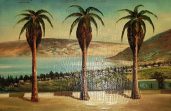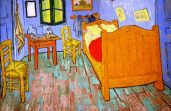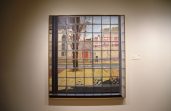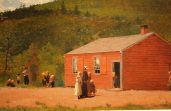Sitting By My Bedside
“One sure window into a person’s soul is his reading list.”
~ Mary B. W. Tabor ~
What are you reading? Are you looking for your next great read? Here is a look at what is sitting by my bedside, and which I am pleased to recommend. Let me know what you think!
~M~
The Lamps Went Out In Europe, by Ludwig Reiners, 1955, Pantheon books INC., New York, New York.
“On March 20, 1890, Wilhelm II, by God’s wrath German Emperor and King of Prussia, dismissed Prince Bismarck from office. It was just a few days before the chancellor’s seventy-fifth birthday. The reasons Wilhelm gave for this action were of the flimsiest. The plan fact was that he wanted to rule the Reich alone. The greatest statesman in German history was, as he himself described it, ‘fired on a day’s notice’ and in terms which no decent draper’s shop would have used toward a clerk of many years’ service. Bismarck was asked to return his salary for the last eleven days of the quarter, which had already been paid out to him.”
~ M ~
A Safe Haven, Harry S. Truman and The founding of Israel, by Allis Radosh and Ronald, 2009, Harper Collins Publishers, New York, New York.
“It is fair to conclude as David Niles did, that if FDR had lived and Truman not been president, there probably, would not haven an Israel. Certainly, if Franklin D. Roosevelt had been in office, support at critical moments would most like not have been offered. Without Truman, the new State of Israel might not have survived its first difficult years, and succeeded thereafter. For this, Truman will continue to be viewed as a hero in Israel and continue to have a place of honor in the history of the Jewish people.”
~ M ~
Anonymous Soldiers, the Struggle for Israel, 1917 -1947, by Bruce Hoffman, 2015 Alfred A. Knopf, New York, New York.
“The delicacy of navigating between two peoples’ historical, cultural, religious, and political claims to the same land was beyond the capacity of many British officials in OETA. Not only were they generally unsympathetic to Zionism, but their predisposition favoring the Arab claim poisoned relations with Palestine’s Jewish community. The anti-Semitism common to the British upper and officer classes of the time likely played a role as well. This antipathy toward the Jews and Zionism became so obvious that, following a visit to Palestine in 1920, the director of military intelligence reported to his superiors in London that OETA’s military and civilian officials were ‘unanimous in expressing their dislike of any policy favoring the Jews, and (harbor) serious fears of the consequences of such a policy.’”
~ M ~
The Duchess of Bloomsbury Street by Helene Hanff, 1973, Moyer Bell, Kingston, Rhode Island & Lancaster, England.
“I’d written a book called 84 Charing Cross Road, and a few months after it came out in New York, a London publisher named Andre Deutsch bought it for publication in England. He wrote me that the London edition would be brought out in June and he wanted me there to help publicize the book. Since he owed mea small ‘advance,’ I wrote and told him to keep the money in his office for me. I figured it was enough to keep me in London for three weeks if I was frugal.”
~M~
The Fugu Plan, The Untold Story of the Japanese and the Jews During World War II, by Marvin Tokayer and Mary Swartz, 1979, Paddington Press, New York and London.
“That was strange, Sugihara had thought at the time, because, to the best of his knowledge, all the countries of the world now required entrance visas. Even Shanghai, the one place traditionally open to everyone under any circumstance, no questions asked, had, under Japanese occupation, instituted visa requirements the year before. However, what Curacao required was the business of the Dutch, not the Japanese. So Sugihara stamped the multi-lingual transit visa into Gutwirth’s passport, filling in the date of issue and duration of validity.”
~M~
La Edad De Oro (The Golden Age), by Jose Marti, 1983 edition, originally published in 1889, La Moderna :Poesia, INC., Santo Domingo, Republica Dominicana.
“Para los niños es este periódico, y para las niñas, por supuesto. Sin las niñas no se puede vivir, como no puede vivir la tierra sin luz. El niño ha de trabajar, de andar, de estudiar, de ser fuerte, de ser hermosos: el niño pude hacerse hermosos aunque sea feo; un niño bueno, inteligente y asead es siempre hermoso.”
~M~
Leap of Faith, Memoirs of an Unexpected Life, by Queen Noor, 2003, Hyperion, New York, New York.
“Work for life on this earth as if you are to live forever, and work for the life after in heaven as you are to die tomorrow.”
~M~
Adrift, The Cuban Raft People, by Alfredo A. Fernandez, Translated by Susan Giersback Rascon, 2000, Arte public Press, university of Houston, Houston, Texas.
“What awaited the raft people beyond the three-mile limit that they supposedly could reach in their tiny vessels? No one knew. And for the moment no one dared answer the question. The political climate, the announced maritime blockade, the forecasts of the experts regarding the fearsome Gulf Stream, as well as the predictions of the Miami Meteorological Service, did not bode well.
Nevertheless, the raft people, daring all that might befall them, advanced slowly across the waves, on tiny rafts, believing, with the highest hopes in the world, that they would arrive safe on the coast of the new promised Land of the United States of America.”
~M~
Voyage of the Damned, by Gordon Thomas and Max Morgan Witts, 1974, Stein and Day/Publishers/ Scarborough house, Briarcliff Manor, New York.
“Then, suddenly, incredibly, he and a group of other men were released on condition they all leave Germany within fourteen days. They were driven out of the camp and dumped at Nuremberg’s station. there, waiting for him, aged and drawn but smiling was Rachel, with the children. She held a shabby suitcase filled with his clothes. She explained that her family had raised the money to buy him a Cuban visa and tourist-class ticket on the St. Louise; he wept as she said that she and the children would follow, later, on another boat.”
~M~
Watchmen on the Walls, An Eyewitness Account of Israel’s Fight for Independence from the Journal of Hannah Hurnard, by Hannah Hurnard, 1997, Monarch Publications Ltd., Broadway House, The Broadway, Crowborough, East Sussex, TN^ 1HQ, England.
“Back in November 1917, the Balfour Declaration had promised the Jews a homeland in Palestine, provided the rights of the indigenous population were not infringed upon. but no one had quite worked out how the hopes and aspirations of both peoples could be justly accommodated in such a circumstance. in the course of time, Britain made promises to both Arabs and Jews that proved to be incompatible and, in trying to please all parties, succeeded only in pleasing none.”
~M~
Lipstick Jihad, A Memoir of Growing Up Iranian In America And American In Iran by Azadeh Moaveni, 2005, PublicAffairs, New York, New York.
“All our lives were formed against the backdrop of this history, fated to be at home nowhere – not completely in America, not completely in Iran. For us, home was not determined by latitudes and longitudes. It was special. This, this was the modern Iranian experience, that bound the diaspora to Iran. We were all displaced, whether internally, on the streets of Tehran, captives in living rooms, strangers in our own country, or externally, in exile, sitting in this New York bar, foreigners in a foreign country, at home together.”
~M~
The Man in the White Sharkskin Suit, My Family’s Exodus from Old Cairo to the New World, by Lucetee Lgnado, 2007, HarperCollins Publishers, New York, New York.
“As we drove away, I felt that I was leaving all I cared about behind, not simply a stranger who had shown me such unexpected kindness, but another old woman, grandmother, Zarifa, and another, Nonna Alexandra, a young woman, too, my mother, Edith, crossing the threshold of Malaka Nazli as a twenty-year-old bride, and Baby Alexandra, the sister I had never known, and my two uncles who had seemed forever lost — the child of the souk and the priest, returned from his Jerusalem monastery — and my aunt Bahia, back from Auschwitz, clutching her husband and Violetta, and my father, about all, my father.
~M~
Jewett, Novels and Stories, Sarah Orne Jewett, Library of America College Edition, 1996, distributed by Penguin Books, New York, New York.
“The world goes on year after year. We can use its forces, and shape and mould them, and perfect this thing or that, but we cannot make new forces; we only use the tools we find to carve the wood we find. there is nothing new; we discover and combine and use.”
~M~
The Paris Wife, by Paula McLain, 2012, Ballantine Books Trade Paperbacks, New York, New York.
“Though I often looked for one, I finally had to admit that there could be no cure for Paris. Part of it was the war. The world had ended once already and could again at any moment.
~M~
The Greater Journey, Americans in Paris, by David McCullough, 2011, Simon & Schuster, New York, New York.
“The Greater Journey is the enthralling, inspiring – and until now, untold – story of the adventurous American artists, writers, doctors, politicians, architects, and others of high aspiration who set off of Pairs in the years between 1830 and 1900, ambitious to excel in their work.”
~M~
An Island Called Home, Returning to Jewish Cuba, by Ruth Behar, Photographs by Humberto Mayol, originally published in 2007, second paperback printing 2013, by Rutgers University Press, New Brunswick, New Jersey, and London.
“Yiddish – speaking Jews thought Cuba was supposed to be a mere layover on the journey to the United States when they arrived there in the 1920’s. They even called it “Hotel Cuba.” But as the years passed, the many Jews who came from war-torn Europe remained, and the beloved island ceased to be a hotel and eventually became ‘home.’ When Fidel Castro came to power in 1959 the majority of the Jews left in a mass exodus, remaking their lives in the United States, yet mourning the loss of the Jewish community they had built.”
~M~
Tropical Diaspora, The Jewish Experience in Cuba, by Robert M. Levine, originally published in 1993, current edition 2010, by Markus Wiener Publishers, Princeton, New Jersey.
From the Foreword: “In proportional terms, Cuba offered refugee or migrant status to more Jews than did any other Latin American country. Proportionally more, in fact, that was offered by the United States. . . . In this scholarly and informative book, Robert M. Levine offers three reasons for this unusual circumstance.” ~ Anthony P. Maingot ~
“I go into my library and all history unrolls before me.”
~ Alexander Smith ~











